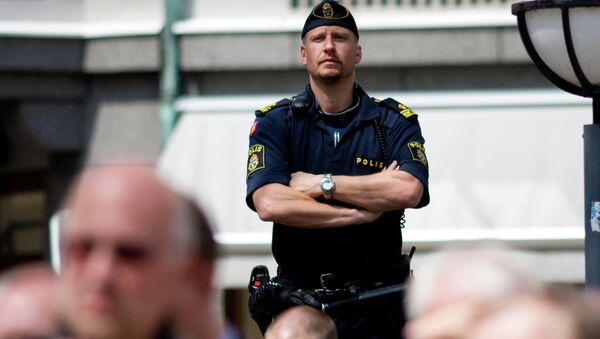The United Nations has expressed concern with the growing number of crimes against Muslims and Jews, cases of violence against women, as well as ethnic discrimination in Sweden.
"[The Committee on the Elimination of Racial Discrimination] expressed concern at increasing reports of racially motivated hate speech against visible minorities, including Muslims, Afro-Swedes, Roma and Jews, particularly by some far-right politicians," the UN report said.
In 2013 Sweden accepted 29,000 refugees, compared with an influx of 6,000 in Norway, 4,000 in Denmark and 2,000 in Finland. On top of that, in 2013 Sweden issued more residence permits — 67 per cent — compared to 2012.
Top 5 hosts of #Syria-n #refugees in Europe 1 #Germany 2 #Sweden 3 #Serbia 4 #Netherlands 5 #Bulgaria http://t.co/QGElxCXnSK
— UNHCR United Kingdom (@UNHCRUK) January 27, 2015
Such a great number of newcomers into Sweden — most of whom are culturally different from most Swedes in their mentality and values system — has become a real issue. It has proved difficult to integrate such a big number of refugees into society and Swedish taxpayers are not necessarily happy that they are the ones footing the bill.
In addition, at least 20 people suspected of having committed war crimes or crimes against humanity sought asylum in Sweden last year and were given temporary residence permits by the Immigration Service.
These people do not really have the right to asylum, but because they risk being killed or tortured in their home countries and therefore — by law — cannot be expelled from Sweden, they stay.
"That is the case. Since they can't be sent back, they stay here," says expert Magnus Bengtsson from the Swedish Migration Board. "It is clear that there is a reason these people have been excluded from protection and received a deportation order. So some concern remains."
Last year over 80,000 people sought asylum in Sweden. The majority of them came from Syria, Eritrea, Somalia and Afghanistan — countries where extremist groups commit crimes against the population.
@tylercowen Sweden is taking in close to 100,000 refugees a year, mainly from the middle east and Africa. They are committing suicide.
— Tom Stead (@TomStead1) January 29, 2015
But it is not only the victims of war who are coming to Europe and Sweden to seek asylum. Last year, the Swedish Migration Board denied 20 people asylum applications on the grounds they were suspected of terrorist activity or having committed crimes against civilians.
"Such exceptions are valid, despite the deportees having applied for asylum," Bengtsson says.
Even though they are not entitled to asylum, they still get temporary residence permits because they can't be deported from Sweden.
The reason for this is the threat of torture or execution back home, says Magnus Bengtsson.
"The question is: what kind of alternative can we provide? At the moment we act according to our legislation."
Another problem emerges if immigrants don't express any particular interest in integrating into Swedish society. Many indigenous Swedes realise that they may have to change their way of life under the pressure of the growing number of immigrants, which may lead to the fear that they are losing their national identity.
' One in five voters (20 percent) believe that the integration of immigrants is the biggest social issue in Sweden' Ipsos for @dagensnyheter
— charles a cartwright (@CharlesCartwr) January 29, 2015
In that context, their hostility towards immigrants is likely to escalate, as will the rate of crime against newcomers.




